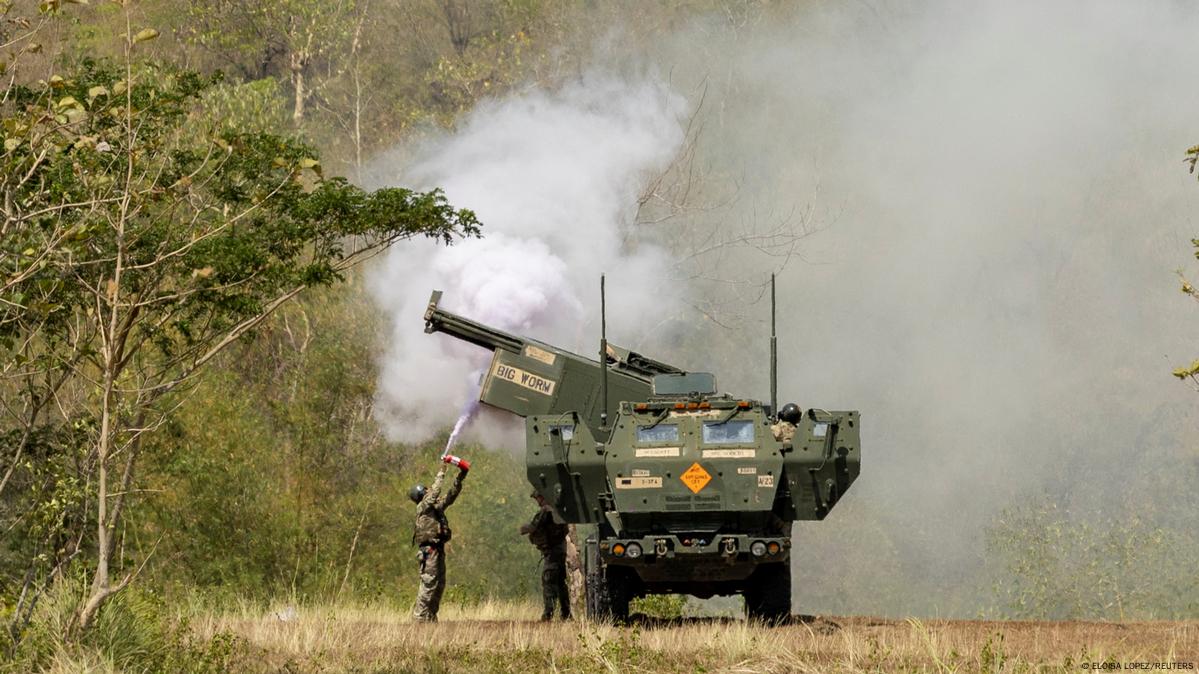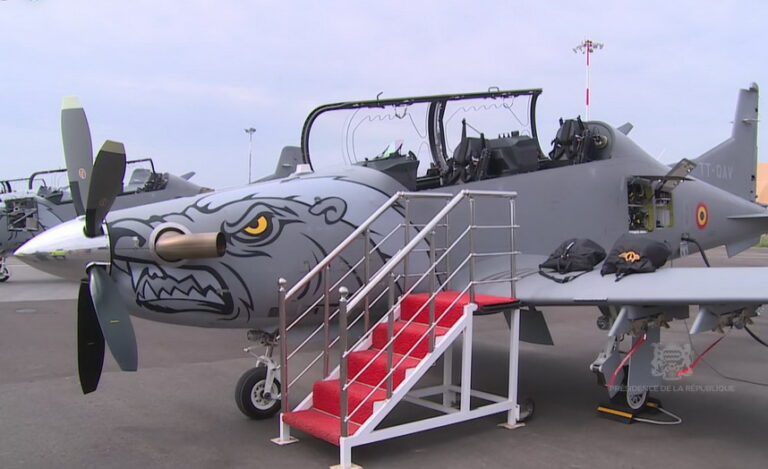Philippines Ups The Ante: Expanded Military Exercises With The US In Balikatan

Table of Contents
Increased Scope and Scale of Balikatan 2024
Balikatan 2024 marks a significant expansion in the scale and scope of the US-Philippines joint military training. This year's exercises demonstrate a clear commitment from both nations to enhance their defense capabilities and interoperability in the face of shared security challenges. The expansion is evident in several key areas:
- Increased Troop Participation: A larger number of troops from both the US and the Philippines are participating in Balikatan 2024 compared to previous years, reflecting a heightened commitment to joint training.
- Expanded Training Areas: The exercises will span a wider geographical area across the archipelago, utilizing diverse terrains and environments to simulate real-world scenarios. This includes both established and newly incorporated training locations, allowing for a more comprehensive and realistic training experience.
- New Training Scenarios: The scope of training has broadened to include critical areas such as cybersecurity, humanitarian assistance and disaster relief (HADR) operations. This reflects a broader approach to regional security cooperation beyond traditional military engagements. Cybersecurity training is particularly relevant given the growing threat of cyberattacks against critical infrastructure.
Specific examples include amphibious landing exercises in the western Philippines, utilizing US Marine Corps equipment, and joint counterterrorism training in Luzon, incorporating advanced weaponry and tactical simulations. These exercises will take place across multiple locations including Luzon, Visayas and Mindanao.
Geopolitical Context: Responding to China's Assertiveness in the South China Sea
The expansion of the Balikatan military exercises is directly linked to China's increasingly assertive actions in the South China Sea. China's expansive maritime claims, its disregard for international law, and its construction of artificial islands have heightened tensions and raised concerns about freedom of navigation and regional stability. The strengthened US-Philippines alliance, as demonstrated by the expanded Balikatan exercises, serves as a critical counterbalance to these actions.
The intensified joint training reflects a shared commitment to upholding the rule of law in the South China Sea, ensuring freedom of navigation, and deterring any potential aggression. The exercises are a clear signal that the US and the Philippines are prepared to work together to maintain peace and stability in the region amidst the ongoing South China Sea disputes and China's maritime claims.
Enhanced Military Capabilities and Interoperability
The Balikatan military exercises are crucial for enhancing the military capabilities and interoperability of both the US and Philippine armed forces. Through these joint training exercises, both militaries improve:
- Interoperability: Joint operations require seamless coordination and communication. Balikatan improves this interoperability by providing opportunities for soldiers from both nations to train together, using compatible equipment and tactics.
- Readiness: The realistic training scenarios enhance the readiness of both forces, preparing them for a range of potential contingencies.
- Skill Exchange: The exercises facilitate the exchange of critical skills and technologies, including amphibious landings, counterterrorism tactics, and advanced communication systems.
This enhanced military interoperability and the improved defense capabilities are essential for responding effectively to regional security challenges.
Public Opinion and Domestic Politics in the Philippines
The expanded Balikatan military exercises have sparked discussions within the Philippines regarding the country's closer military ties with the US. While there is significant support for strengthening the defense capabilities of the Philippines, there are also voices expressing concerns about potential domestic political implications. Public opinion is complex and nuanced, with varying perspectives on the appropriate level of military cooperation with the US.
The political implications are significant, with the government navigating the delicate balance between national security needs and the sensitivities surrounding the relationship with China. Statements from Philippine officials emphasize the defensive nature of the alliance and its focus on maintaining regional stability.
Conclusion: The Future of Balikatan and US-Philippines Military Cooperation
The significant expansion of the Balikatan military exercises underscores the growing strategic partnership between the US and the Philippines. The exercises are not merely a display of military might, but a crucial element of a broader strategy to address the complex geopolitical challenges in the Asia-Pacific region, particularly those related to the South China Sea. The increased scope, enhanced interoperability, and focused training demonstrate a shared commitment to maintaining regional stability and upholding the rule of law. The future of Balikatan military exercises will undoubtedly continue to evolve in response to the evolving security landscape. Stay informed about future Balikatan exercises and the growing US-Philippines defense partnership to understand the evolving dynamics of regional security in the Asia-Pacific region. Learn more about the ongoing impact of the Balikatan military exercises on US-Philippines relations.

Featured Posts
-
 I Kroyz Azoyl Toy Giakoymaki Ston Teliko Toy Champions League
May 20, 2025
I Kroyz Azoyl Toy Giakoymaki Ston Teliko Toy Champions League
May 20, 2025 -
 Escape From Trump Americans Pursuit Of European Citizenship
May 20, 2025
Escape From Trump Americans Pursuit Of European Citizenship
May 20, 2025 -
 Todays Nyt Mini Crossword Answers For March 15
May 20, 2025
Todays Nyt Mini Crossword Answers For March 15
May 20, 2025 -
 Solutions For The Nyt Mini Crossword April 18 2025
May 20, 2025
Solutions For The Nyt Mini Crossword April 18 2025
May 20, 2025 -
 The Trump Presidency And Aerospace An Examination Of Deal Making
May 20, 2025
The Trump Presidency And Aerospace An Examination Of Deal Making
May 20, 2025
